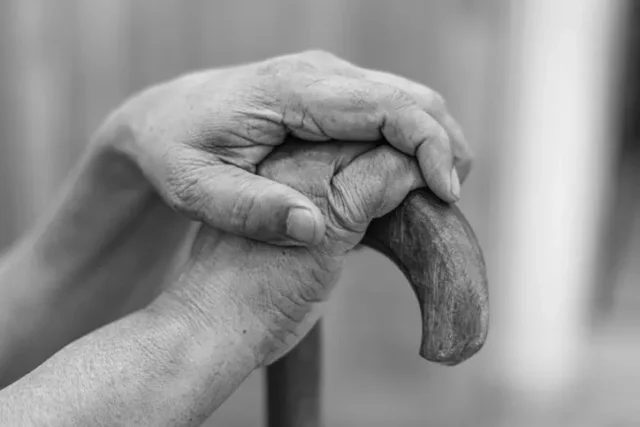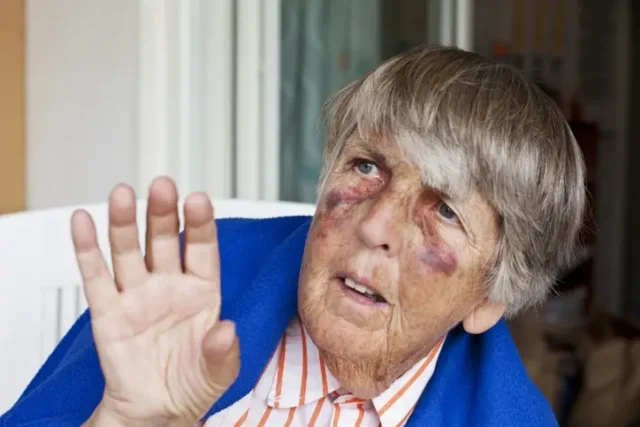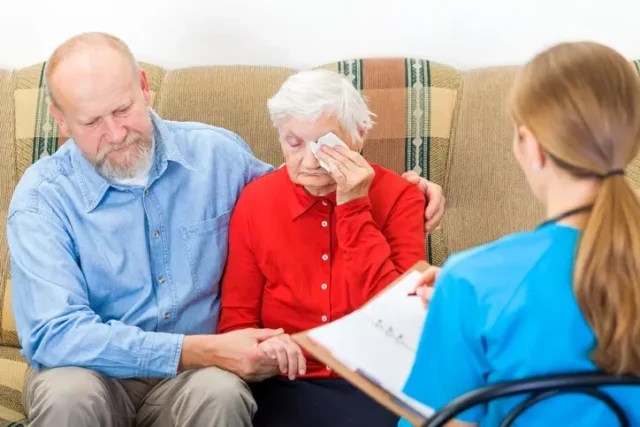Arizona is a popular destination for retirees. In fact, census data shows Maricopa County has the largest population growth in the nation—gaining 56,831 residents in 2022. That means roughly 156 people are moving there every day. Unfortunately, a growing senior population increases the odds of nursing home abuse in Arizona.
Sadly, there were more than 32,000 reports to Arizona’s Adult Protective Services in 2023. In Maricopa County alone, there were more than 17,000 reports of elder abuse last year.
Considering that nearly 18.8% of Arizona’s residents are 65 or older, the need for vigilance in elder care is high. Especially since that number is expected to grow up to 38% by 2040.
With stats that high, if you suspect a case of nursing home abuse in Arizona, don’t discount your suspicions. Get more information and potentially consult with a nursing home abuse attorney so you know your options. This guide will also help you find out how to get the help you need.
Free Nursing Home Neglect Evaluation
Were you or your loved ones victims of abuse? Click here to speak with a nearby attorney for FREE about your Nursing Home Neglect claim.
or call (888)-927-3080
What Causes Nursing Abuse in Arizona?

To begin with, in the past there have not been steep enough regulations in Arizona nursing home law. However, the Attorney General’s office is launching an aggressive campaign to crack down on facilities not properly caring for residents.
State law requires that lawyers suing nursing homes or elder care facilities notify the Attorney General’s Office. The AG for Arizona says they are monitoring databases of these complaints to investigate repeat-offenders.
The AG also intends to levy heavier fines on nursing homes found guilty of abuse. Negligent facilities typically only paid the Arizona Department of Health Services $500 fines. But state law can give the AG the right to charge much more for damages.
Another reason for escalating elder abuse cases is the lack of trained staff. Due to a nationwide labor shortage, many nursing homes are having trouble finding qualified employees. The unfortunate result is a large swath of seniors not getting the care they need and deserve.
Nursing Home Resident Rights in Arizona
All Arizona long-term care (LTC) residents have rights protected by state and federal law. In Arizona, this includes not only the 1987 Nursing Home Reform Act, but also state-specific protections.
Many seniors don’t realize that nursing homes must legally inform residents of these rights. Each facility’s “bill of rights” must be available in both oral and written form upon request.
It’s important for all residents of nursing homes and their loved ones to be aware of these rights. Especially because these laws are in place to protect residents from nursing home abuse in Arizona.
Per the Arizona Department of Health Services, all LTC residents have the right to:
- Be treated with dignity and respect, while recognizing individuality and preferences
- Receive quality treatment that is fair and free from discrimination
- Entertain visits from family and friends
- Have privacy in communications, telephone calls, and mail
- Participate in their care plan and treatment decisions
- Keep personal and health records confidential
- Expect privacy when in their room, while bathing, receiving medical treatment, and during personal care
- Choose to participate in activities—religious, social, and community
- Register to vote in local, state, and national elections
- Manage their own financial affairs
- Be free from abuse and the use of restraints
- Have a safe, clean, and home-like environment
There are more rules than the dozen we present above, but this gives a solid overview. Also make sure to acquaint yourself with the rules specific to your facility as well.
The most important thing to remember here, however, is that individuals living in LTC have protections. Elder abuse is not only unforgivable, it’s against the law.
Types of Nursing Home Abuse or Neglect in Arizona

ARS 13-3623 holds individuals responsible for causing, allowing, or endangering a vulnerable adult’s health or well-being.
In Arizona the charge for such a transgression is a felony, not just a misdemeanor. Anyone guilty of elder abuse may face up to 12 years in jail, or more. The severity of the abuse and the nursing home’s liability all affect the outcome of a claim.
Nursing home abuse in Arizona can manifest in a variety of ways, sometimes with several types happening simultaneously. The most common fall into certain types of abuse (physical, emotional, sexual, financial) or nursing home neglect.
Physical Abuse
This is the most obvious form of abuse since it’s typically tangible and visible.
Examples might include physical assault like punching, kicking, or slapping a patient. However, less outwardly violent actions may also count towards a claim, such as the improper use of straps or ties. Binding a resident in that manner would be a more covert form of physical abuse.
Frequently, caregivers or residents will try to explain away the signs of physical abuse as normal aging frailty. Accordingly, it’s important to be on the lookout for inexplicable injuries or other signs.
Emotional Abuse
Emotional abuse can be harder to spot since it’s more subtle and often leaves no physical evidence. Frequently, it also remains unreported by residents for fear of retaliation from their caretakers.
In fact, the Long Term Care Community Coalition (LTCCC) finds that speaking up is often met with retribution. As a result, many emotionally abused nursing home residents stay silent. This implies that the actual number of elder abuse cases may be higher than the already disturbing statistics.
Emotional abuse in a nursing home situation often looks like:
- Verbal assaults and threats
- Humiliation and harassment
- Intentional embarrassment
- “Giving the silent treatment”
- Intimidation
- Name-calling
- Blaming for minor offenses
- Isolation from other residents
Sexual Abuse
Though less frequent, sexual abuse of the elderly does still happen—by staff but also sometimes other residents.
The World Health Organization found that 1.9% of nursing home residents are victims of non-consensual sexual contact or overtures. No older adult should have to worry about fighting off unwanted advances while residing in LTC.
Examples of sexual abuse may include:
- Sexual assault
- Rape
- Coercion to perform sexual acts
- Indecent exposure
- Inappropriate advances
- Taking and distributing suggestive photos without consent
Financial Exploitation
The Arizona Attorney General’s office defines this type of nursing home abuse as:
“The illegal or improper use of a vulnerable adult or his/her financial resources for another’s profit or advantage.”
Typically this occurs through the use of:
- Undue influence
- Harassment
- Duress
- Deception
- False representation
- False pretenses
Financial exploitation of the elderly is very common because of their fixed incomes and wealth accumulation over time. Regular retirement and social security benefits, savings, and other assets coupled with cognitive decline make seniors prime targets.
Sadly, nursing home residents frequently don’t realize the manipulation until it’s too late. This is especially true if they trust or fear their caregiver. So, it’s important to keep an eye out for potential warning signs.
Neglect
Though nursing home neglect is technically abusive, it falls in its own category. This is because instead of being intentional, it’s most commonly due to negligence. But whether it happens “on purpose” or not, nursing homes are still responsible for the well-being of their nursing home residents.
The previously aforementioned lack of nursing home staffing is one reason for a burgeoning number of neglect cases. Still, it’s unacceptable. Especially since it’s a requirement that all licensed nursing home facilities meet the basic needs of their residents.
Specific examples of nursing home neglect may include:
- Failing to provide care, shelter, clothing, or food
- Ignoring an incapacitated or vulnerable adult
- Not performing prescribed necessary medical or wound care for residents
- Refusing to change residents after repeat episodes of incontinence
- Neglecting to bathe residents
- Turning off a call light or routinely not responding to resident requests
Warning Signs of Nursing Home Abuse
The best way to stop nursing home abuse is to spot early warning signs before abuse escalates.
While the symptoms depend on abuse type, here are some of the clues the Department of Justice suggests you should look for:
- Bruises, black eyes, welts
- Bleeding, cuts, lacerations
- Sprains, dislocations, broken bones
- Unusual changes in sleeping and eating patterns
- Dramatic weight loss
- Emotional upset or agitation
- Personality changes, such as excessive apologizing
- Depression or anxiety
- Unexplained disappearance of funds or possessions
- Untreated bedsores
- Torn or dirty clothing or undergarments
- Unsanitary or unclean living conditions
How to Report Nursing Home Abuse in Arizona

Though many older adults are afraid to speak up, you shouldn’t hesitate if you believe there is evidence of abuse.
In some cases, it’s actually a requirement. Arizona has Mandated Reporter Laws in place for people in certain professions.
According to ARS § 46-454, health and medical professionals, social workers, therapists, and even accountants must immediately report their suspicions. This also extends to guardians and conservators for a nursing home resident.
Arizona takes its mandatory reporting laws seriously. Anyone violating this provision may be liable for committing a Class 1 misdemeanor. If you work in a profession that regularly interacts with the elderly, you may be on this list. It may be part of your job description to report any suspected incidents of abuse or neglect.
For everyone else, there are numerous resources at your disposal for reporting suspected nursing home abuse in Arizona. If you’re unsure if it’s abuse, it’s still better to report than to let a potential victim suffer.
In emergency situations, the first step should always be to call 911 or the police. When there is immediate danger to your loved one’s safety, this is the correct action.
Next, report the situation to the nursing home to see if management can rectify the situation. If there’s no resolution, it’s time to contact other outside agencies like an attorney that help with elder abuse cases.
Arizona Adult Protective Services
Anyone suspecting nursing home abuse in a care facility should call the Arizona Adult Protective Services (AAPS) hotline. The number is: 1-877-SOS-ADULT (1-877-767-2385)
You can file a report Monday-Friday, 7 a.m. to 7 p.m., or weekends and holidays, 10 a.m. to 6 p.m.
Another option is to file the report online, which can be done 24 hours a day, seven days a week.
Area Agency on Aging
Arizona’s Area Agency on Aging can also help with nursing home abuse claims.
They have a 24-hour senior abuse helpline which you can reach at:
- 1-602-264-HELP (1-602-264-4357)
- 1-888-785-7500 (Toll free)
- 1-520-775-1899 (SMS/text message)
The 24-Hour Senior helpline is an information and assistance program that will offer advice and referrals. It is also the central intake for all Area Agency on Aging services, including the long-term care ombudsman for Maricopa County.
Long-Term Care Ombudsman Program (LTCOP)
For those unfamiliar, an ombudsman is a free advocate who will act on behalf of a nursing home resident. The job of an ombudsman is to identify, investigate and work towards the resolution of resident complaints. They will also help the families of residents while striving to protect the rights of all individuals in LTC situations.
The Arizona Department of Economic Security manages the LTCOP for the state. Find your local ombudsman office to request an ombudsman’s help with your situation.
Arizona Attorney General’s Task Force Against Senior Abuse (TASA)
The Arizona Attorney General’s Office is an important resource for anyone dealing with a case of nursing home abuse in Arizona.
Not only does the office offer an Elder Abuse Information and Training Guide, but it also has a hotline. You can contact the Attorney General’s TASA helpline at:
- 1-844-894-4725 or 1-602-542-2124
Anyone dealing with cases of financial exploitation of a nursing home resident should definitely reach out to TASA.
Arizona Department of Health Services
You may file a complaint against a nursing home facility in general via the Arizona Department of Health Services (AZDHS).
By filling out their online complaint form, you can let the department know about suspected violations occurring within a LTC facility. Complaints can be filed via phone at 1-602-364-2536.
The AZDHS also allows citizens to check Arizona nursing home licensing through their website. This is especially helpful when searching for replacement nursing homes that can care for your loved one after sustaining abuse.
What Information is Necessary to File a Report
When contacting any government agency or a nursing home abuse attorney, they’ll want you to provide as much detail as possible. Some information that may be helpful to gather includes:
- Name and age of your loved one
- Name, address, and phone number of the nursing home
- Your contact information and relationship to the abused
- Any known mental, physical or emotional impairments
- Brief description of the suspected abuse, and how you know about it
- Date or dates of the abusive event
- Lists of other agencies who you may have contacted (such as law enforcement)
- Contact information for any witnesses
- Details about the alleged perpetrator(s) including name, age, physical description, position at the nursing home, and contact info if available
More evidence can prove to a court and jury that the nursing home was responsible for both you and your loved one’s losses. When it’s time to file a claim for nursing home abuse in Arizona, the more info you have, the better.
Types of Damages For Nursing Home Abuse in Arizona
If your loved one experiences demonstrable injuries from nursing home abuse in Arizona, they may also be owed compensation for their losses. At this point, a civil lawsuit occurs in addition to any felony charges a perpetrator may incur.
To pursue a claim against a nursing home or individual, you will definitely want a skilled attorney by your side. A lawyer can help you determine which categories of abuse your claim falls under, and what damages to seek.
In general, there are two potential types of damages for nursing home abuse cases:
- Compensatory damages
- Punitive damages
Compensatory Damages
Compensatory damages are financial payouts for “actual” damages resulting from the incident.
These may be in the form of economic damages, like medical bills or money lost via financial exploitation. Or they may be non-economic damages like pain and suffering or emotional distress.
Punitive Damages
Punitive damages are payouts not meant to cover losses, but instead they are included to punish the perpetrator.
These only show up in cases where it’s clear the defendant was acting with malice and intent to harm. The idea is that by levying steep fines, it will deter others from trying the same actions. Adding punitive damages to a claim will hopefully serve to prevent future cases of nursing home abuse.
Arizona Statute of Limitations for Nursing Home Abuse
The deadline for filing a case for nursing home abuse in Arizona is two years from the date of incident. This statute of limitations is also in place for cases where the abuse results in wrongful death. However, the clock starts from the date of the victim’s passing in those situations.
In either scenario, it’s crucial to not wait too long. Not only do missed deadlines disqualify a case, but a successful verdict is more likely when details are fresh. Your best bet is to contact a lawyer and file as soon as you can.
Find an Arizona Nursing Home Abuse Lawyer With LegalASAP
Once you’ve followed all the steps to report nursing home abuse, it can feel overwhelming to also consider legal action. But a nursing home lawyer can actually make the process easier for you.
It can only help to have someone who knows all the legal ins-and-outs of the system in your corner. Plus, a lawyer can potentially secure you a higher settlement than you might get otherwise.
Discovering a case of nursing home abuse is traumatic enough. Let us connect you with one of the attorneys in our network for a free consultation. We’d like to help you get your loved one into a better situation as soon as possible.
Kimberly Dawn Neumann
Kimberly Dawn Neumann is a multi-published NYC-based magazine and book writer whose work has appeared in a wide variety of publications ranging from Forbes to Cosmopolitan. She graduated summa cum laude from the University of Maryland, College of Journalism. For more, visit: www.KDNeumann.com or Instagram @dancerscribe.


